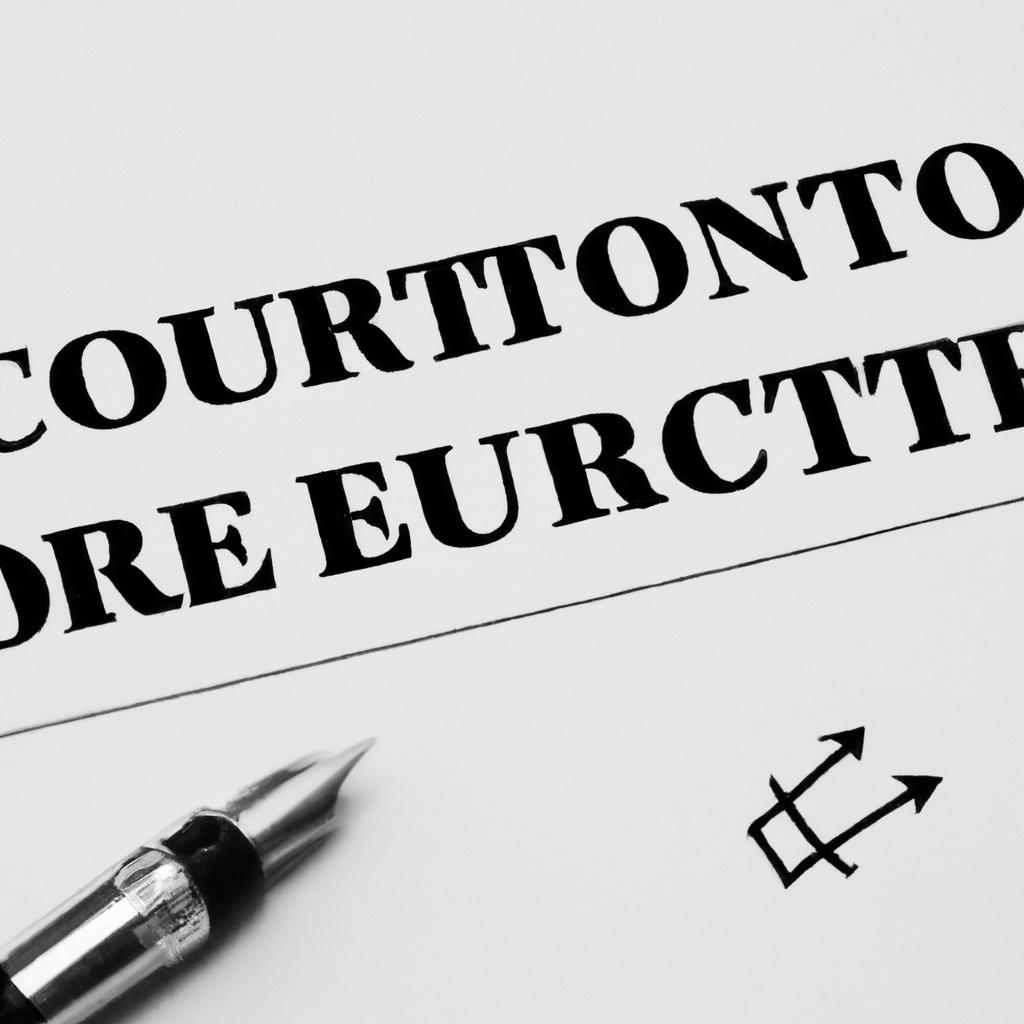When an individual is named as the executor of an estate, they are entrusted with the important task of carrying out the deceased’s wishes and ensuring that their assets are distributed according to their will. However, in some cases, an executor may refuse to act, leaving beneficiaries in a state of uncertainty and frustration. In such situations, it is crucial to understand the legal options available to address this issue and ensure that the estate is properly administered. As experienced estate planning attorneys at Morgan Legal Group in New York City, we specialize in guiding individuals through the complexities of probate and trust administration. In this article, we will explore what steps beneficiaries can take if an executor refuses to fulfill their duties, providing valuable insights and strategies to navigate this challenging scenario.
Legal Remedies for Dealing with a Non-Acting Executor
When faced with a non-acting executor, it is crucial to understand your legal remedies in order to move forward with the probate process. If the executor named in the will is refusing to fulfill their duties, there are several steps you can take to address the situation:
- Request a court order: You can file a petition with the court to request an order compelling the executor to fulfill their duties. This legal action can help resolve the issue and move the probate process forward.
- Remove the executor: If the executor continues to neglect their duties, you may be able to petition the court to have them removed. A new executor can then be appointed to administer the estate effectively.
| Name | Role |
|---|---|
| John Doe | Refusing Executor |
| Jane Smith | New Executor |
It is important to consult with an experienced estate planning attorney to guide you through the legal process and ensure that your rights are protected. Our team at Morgan Legal Group in New York City specializes in estate planning, probate, and trusts, and we are here to help you navigate the complexities of dealing with a non-acting executor. Contact us today to schedule a consultation.

Navigating the Court System for Executor Removal
If you find yourself in a situation where the executor of an estate refuses to act, it is important to navigate the court system for executor removal effectively. One possible course of action is to petition the court for the removal of the executor due to their refusal to perform their duties. This process typically involves the following steps:
- Evidence: Gather evidence of the executor’s refusal to act, such as communications or documented instances where they have neglected their responsibilities.
- Petition: File a petition with the court requesting the removal of the executor on the grounds of their refusal to carry out their duties.
- Hearing: Attend a hearing where you can present your case for the removal of the executor, and the court will make a decision based on the evidence presented.
If the court decides to remove the executor, they will appoint a new executor to handle the estate. It is essential to work with an experienced estate planning attorney throughout this process to ensure that your rights are protected and that the estate is managed effectively. At Morgan Legal Group in New York City, we specialize in estate planning, probate, elder law, Wills, and trusts, and can provide expert guidance on .

Options for Appointing a Successor Executor
When faced with a situation where the designated executor refuses to act, it is important to consider alternative options to ensure the proper administration of the estate. One option is to petition the court to remove the executor and appoint a successor executor. This process typically involves demonstrating to the court that the current executor is unsuitable or unwilling to fulfill their duties.
Another option is to appoint a co-executor to work alongside the current executor or take over their responsibilities entirely. This can help alleviate the burden on the reluctant executor and ensure that the estate is managed effectively. It is important to consult with an experienced estate planning attorney to determine the best course of action based on the specific circumstances of the case.

Consulting with Experienced Probate Attorneys for Guidance
When the executor refuses to act, it can create a difficult and frustrating situation for beneficiaries. Consulting with experienced probate attorneys can provide valuable guidance on how to navigate this challenging scenario. A knowledgeable attorney can help beneficiaries understand their rights and options, and assist in taking the necessary steps to move the probate process forward.
During a consultation with an experienced probate attorney, beneficiaries can expect to receive personalized advice and a clear plan of action. The attorney can help beneficiaries explore legal options, such as petitioning the court to remove the executor or seeking an alternative executor. By seeking guidance from a seasoned probate attorney, beneficiaries can protect their interests and ensure that the estate is properly administered.
Q&A
Q: What do you do if the executor of a will refuses to fulfill their duties?
A: If the executor of a will refuses to act, it can be a challenging situation. Here are some steps you can take to address this issue.
Q: How can you encourage the executor to fulfill their responsibilities?
A: You can try to have a conversation with the executor to understand their reasons for refusing to act. If there are misunderstandings or concerns, you may be able to resolve them through open communication.
Q: What legal options are available if the executor continues to refuse to act?
A: If the executor continues to refuse to act, you may need to take legal action. This could involve filing a petition in probate court to have the executor removed and replaced with someone who is willing to fulfill their duties.
Q: How can you protect the interests of the beneficiaries if the executor refuses to act?
A: To protect the interests of the beneficiaries, you may need to seek legal advice and guidance on how to navigate the situation. It’s important to ensure that the estate is properly administered and that the beneficiaries receive their rightful inheritance.
Q: Are there any alternative solutions if the executor refuses to act?
A: In some cases, mediation or arbitration may be options to resolve disputes with the executor. It’s important to explore all possible avenues for resolution before taking legal action.
To Wrap It Up
In conclusion, dealing with an executor who refuses to act can be a challenging and frustrating experience. However, by understanding your rights and taking the necessary steps outlined in this article, you can help navigate through this difficult situation. Remember, seeking legal advice and guidance from professionals can provide you with the support and direction you need to ensure that the estate administration process moves forward smoothly. Stay patient, proactive, and persistent in advocating for your interests, and know that you are not alone in facing this obstacle. Ultimately, by staying informed and proactive, you can overcome the challenges of an uncooperative executor and move forward with settling the estate in a timely and efficient manner.
 What to Do If Executor Refuses to Act: Understanding Your Rights and Options
What to Do If Executor Refuses to Act: Understanding Your Rights and Options
Being named the executor of someone’s will is both an honor and a responsibility. It means that the individual trusts and believes in your ability to carry out their final wishes and take care of their affairs. However, sometimes, even the best intentions can fall through due to various reasons. One of them is when the executor refuses to act. This can cause confusion, frustration, and discord among beneficiaries and heirs, and it’s essential to know what to do in such a situation. In this article, we’ll discuss everything you need to know about handling an executor who refuses to act and provide practical steps to move forward.
What Does It Mean When an Executor Refuses to Act?
When someone is named as an executor, they have a legal obligation to carry out the instructions and wishes outlined in the will. This includes distributing assets to beneficiaries, settling debts, and handling any other responsibilities assigned to them by the deceased person. However, there may be instances where the executor is unwilling to fulfill these duties.
An executor may refuse to act due to various reasons, including lack of knowledge or experience, personal conflicts with beneficiaries, or simply not wanting to take on the responsibility. Whatever the reason may be, it can significantly delay the probate process and cause friction among loved ones. In some cases, the executor may also be unwilling or unable to carry out their duties due to their own personal or health issues.
Understanding Your Rights as a Beneficiary
As a beneficiary or heir of the deceased, it’s crucial to understand your rights in case the executor refuses to act. First and foremost, you have the right to ask the executor to step down from their role. You can do this by sending a formal demand letter requesting their resignation and giving them a specific date to respond.
If the executor ignores the demand letter or refuses to step down, you have the right to file a petition with the court to have them removed. This can be a complicated and lengthy process, but it’s a necessary step to ensure the will is executed properly and fairly.
Additionally, you have the right to receive information and updates on the status of the estate. This includes a copy of the will, an inventory of assets, and any other relevant documents. If the executor is not fulfilling their duties, they may not be providing this information, and you have the right to seek it out through the court.
Tips for Dealing with an Uncooperative Executor
Dealing with an executor who refuses to act can be a challenging and emotionally charged experience. Here are some tips to help navigate through it effectively:
1. Try to Communicate Clearly and Diplomatically
It’s always best to start by trying to communicate with the executor to understand their reasons for not acting. Be respectful and diplomatic, and try to find common ground to reach a resolution. Keep all communication in writing, and document everything in case you need to take legal action.
2. Seek Mediation
If the executor is uncooperative, consider seeking mediation services to help resolve the issue. A neutral third party can help facilitate a conversation and find a solution that is beneficial for everyone involved. This can save time, resources, and potential legal battles.
3. Get Legal Advice
If the situation escalates and you’re unable to resolve it through communication or mediation, it may be best to seek legal advice. A lawyer who specializes in estate law can review the situation and provide guidance on the best course of action. They can also assist in removing the executor from their role if necessary.
4. Consider Taking Over as Executor
If the current executor is unwilling or unable to fulfill their duties, you may consider taking over as the executor. This will involve going through the appropriate legal channels, but it’s a viable option if no other executor can be found.
5. Be Prepared for a Lengthy Process
Removing an executor and naming a new one can be a lengthy and complicated process, so it’s essential to be patient and prepared for potential delays. It’s also crucial to have a strong support system during this time, whether it’s family, friends, or legal professionals.
Case Study: What Happens When an Executor Refuses to Act?
In a recent case in California, three brothers were named as co-executors of their mother’s estate. However, one of the brothers became uncooperative, refusing to communicate with the others or provide any information about the estate’s status. The other brothers were forced to take legal action and successfully removed him as executor, with the court appointing a neutral third party as the administrator. Through clear communication and legal intervention, the situation was resolved, and the estate was able to be administered properly.
Firsthand Experience: Dealing with a Refusal to Act
“My grandmother named my uncle as the executor of her will, and we were all shocked when he refused to act. It caused a lot of tension and suspicion among my family members, and we were unsure of what to do. We ended up consulting with a lawyer who helped us navigate the situation and remove my uncle as the executor. It was a long and emotional process, but ultimately, the estate was able to be distributed fairly among the beneficiaries.” – Sarah T., Los Angeles, CA
Conclusion
Being an executor is a significant responsibility, and it’s crucial to choose someone who is willing and capable of carrying out the necessary duties. However, if an executor refuses to act, it’s essential to understand your rights as a beneficiary and take appropriate action to ensure the estate is administered properly. Remember to communicate respectfully, seek legal guidance, and be patient as you navigate through the process. With the right approach, an unwilling executor can be replaced, and the final wishes of the deceased can be fulfilled.







